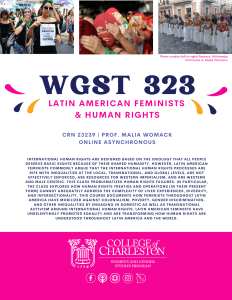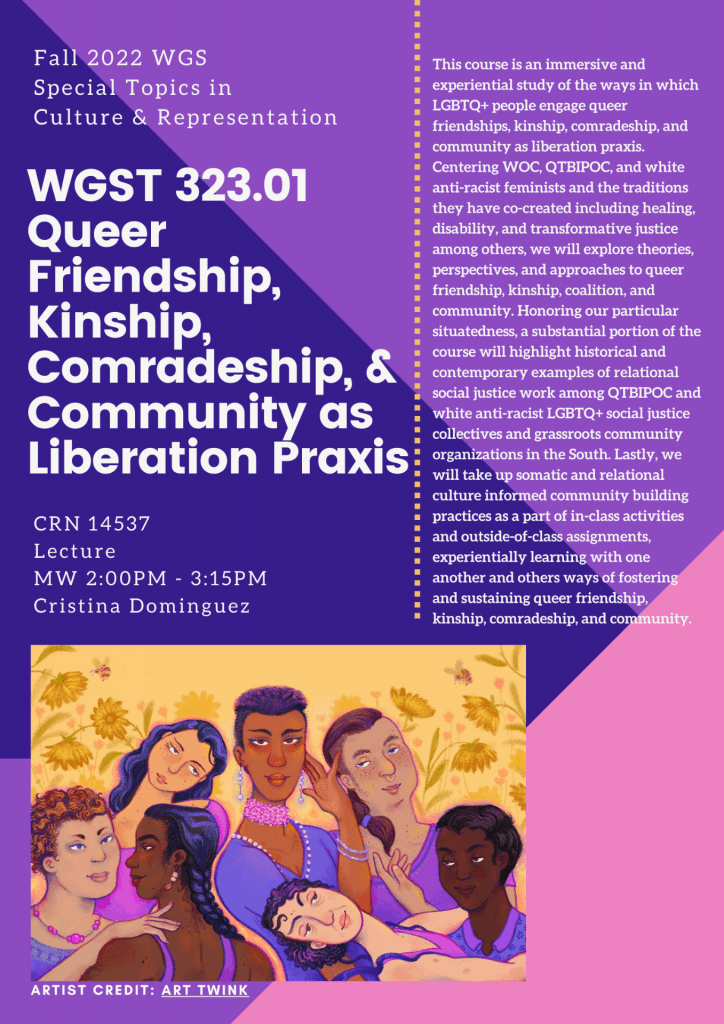
Interested in Latin American feminist and human rights movements? Of course you are! Learn more about this topic by registering for WGS’ special topics course in the spring.
International human rights are designed based on the ideology that all people deserve basic rights because of their shared humanity. However, Latin American feminists commonly argue that the international human rights processes are rife with inequalities at the local, transnational, and global levels, are not effectively enforced, are resources for Western imperialism, and are Western and male centric. This class problematizes human rights failures. In particular, the class explores how human rights treaties and operations (in their present form) cannot adequately address the complexity of lived experiences, diversity, and intersectionality. This course documents how feminists throughout Latin America have mobilized against colonialism, poverty, gender discrimination, and other inequalities by engaging in domestic as well as transnational activism around international human rights. Latin American feminists have unrelentingly promoted equality and are transforming how human rights are understood throughout Latin America and the world.
